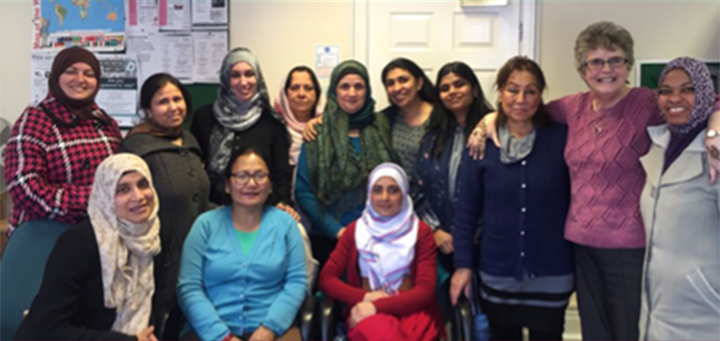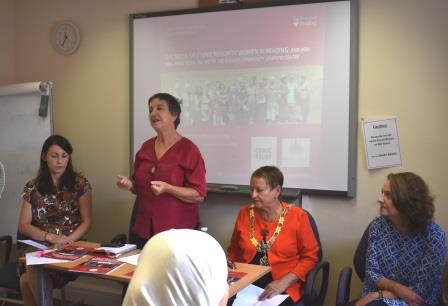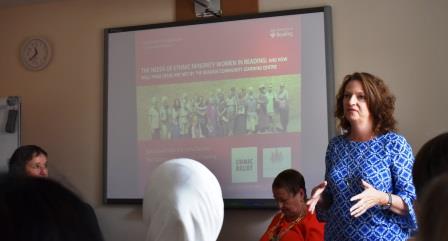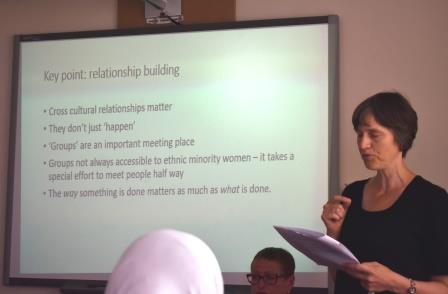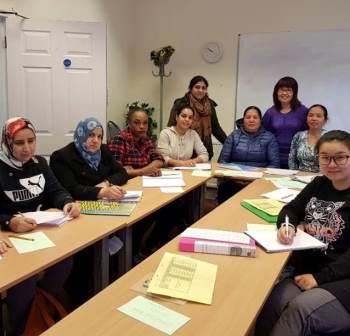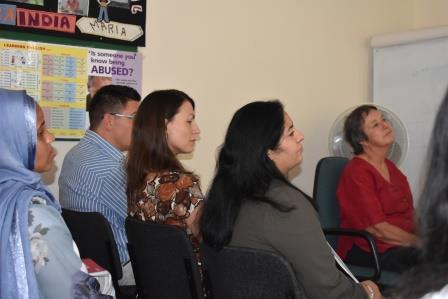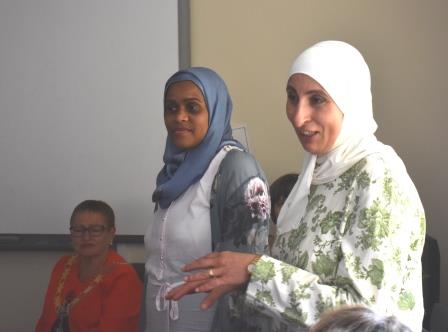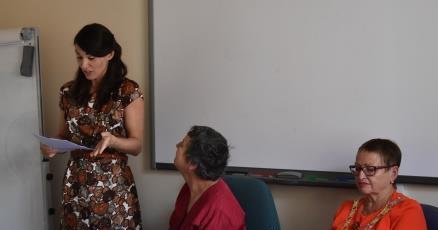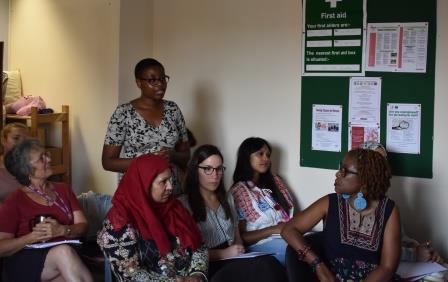Dr. Sally Lloyd-Evans and Dr. Lorna Zischka from the Participation Lab worked with women connected to Reading Community Learning Centre (RCLC) to co-produce research into the needs of ethnic minority women in Reading. The report was launched on 19th July 2018 at Reading Community Learning Centre with a welcome and introduction from Sarah del Tufo, Chair of the Board of Trustees of RCLC and from the Right Worshipful Mayor of Reading, followed by a presentation of the research process and findings by Sally Lloyd-Evans, Lorna Zischka, Raya Mohammed and Hadil Tamim, RCLC learners who had conducted interviews with their peers.
The research sought to understand:
- What do ethnic minority women outside RCLC networks need?
- How do other stakeholder and service providers perceive RCLC?
- What do women inside RCLC say they need to grow their skills, confidence, welfare, inclusion, social status and independence?
Following training, RCLC learners conduced questionnaire-based interviews in respondents’ first language with 114 black and ethnic minority women (over 70% from outside of RCLC). The interviews focused on their everyday lives and circumstances, ambitions and hopes, barriers and concerns, social networks, connections and wellbeing. Interviews were also conducted with organisations serving vulnerable communities by Hayley Ryall and Bethany Brown, University of Reading undergraduate placement students.
The research found that RCLC is meeting a genuine need that is not provided by other organisations in Reading. English language learning and developing social ties (especially cross-cultural social ties) were identified as important needs of ethnic minority women. English language and building social relationships were found to be mutually reinforcing, so the fact that RCLC addresses both together is a particular strength of their approach. Many women lacked alternative opportunities to develop their language skills and cross-cultural connections.
RCLC appears to be targeting those communities most in need of its particular services, with most of its clientele drawn from migrants from the Arab world and South Asia who tended to struggle with language issues and were vulnerable in terms of their distance from the work place and lack of knowledge about mainstream British cultures. Highly educated women and women whose families had money did not necessarily have a higher level of social and workplace integration. Although priority is often given to new arrivals in the UK, an important number of women remain marginalised even after many years living in the UK and should not be automatically excluded from language and skills training provided by community centres such as RCLC.
Strengths identified in RCLC’s approach which increased the accessibility of services to ethnic minority women included: a friendly multi-cultural environment which helped to build confidence; low cost/ free services, which is important to 80% of those interviewed, especially since investments in women’s knowledge and skills is not necessarily a priority for struggling families; women only learning environments, various levels of English and courses other than English; creche to enable women with small children to participate, daytime classes, central location, well networked community centre which can signpost on to other services, volunteering opportunities which help women to take further steps towards social and workplace integration.
The research also highlighted the dilemma that community-based organisations like RCLC may face regarding the length of time learners are able to study with RCLC and facilitating learners to progress on to other study and work opportunities. While continuity of relationships was very much valued, women also identified their ambitions and hopes to gain employment and qualifications through accessible accredited courses. The research therefore recommended that RCLC could do more to help clients to map their personal progression paths from RCLC into other areas of integration appropriate to their circumstances and to improve collaboration with other organisations, for example on issues of funding and on giving women a voice.
To conclude the presentation, Joanne Davis, Comic Relief Impact and Investment Regional Advisor gave her reflections and interesting questions were raised and discussions were held with members of the audience.
To find out more, check out the slide presentation or look out for the report to follow in the coming weeks!
Contact: Sally Lloyd-Evans, Participation Lab Leader
Email: s.lloyd-evans@reading.ac.uk.
The study was commissioned by Reading Community Learning Centre and funded by Comic Relief and the Participation Lab, University of Reading.

